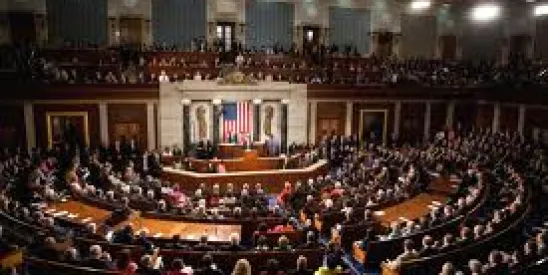As immigration reform moved toward approval by the Senate Judiciary Committee on May 21, 2013, another stand-alone bill (H.R. 2131) has been introduced by Rep. Darrell Issa (R-Calif.) in the House. Mr. Issa is the chairman of the House Oversight Committee but, more importantly to the immigration reform debate, he sits on the House Judiciary Committee. Mr. Issa’s “Skills Visa Act” includes, among other things, provisions that will impact the EB-5 program, and also proposes two other programs that would give entrepreneurs alternatives for pursuing permanent residence.
The EB-5 Changes Include:
-
Permanent Reauthorization: The bill would make the program permanent. It is currently set to sunset in 2015 absent Congressional reauthorization.
-
Minimum investment: The minimum investment amounts would be increased to reflect the change in the value of the dollar from the program’s creation in 1990 to the present day and would be prospectively indexed for future inflation. This could increase the base amounts of investment by almost $300,000 initially.
-
Job Creation: USCIS currently requires that the job creation requirement be met two years after the grant of a conditional green card when an investor seeks the removal of the conditional status of their permanent residence or “at a reasonable time thereafter.” The bill states that the required jobs must actually exist at the time that the conditional status is removed and allows USCIS to extend the conditional status for an extra year in order to give an investor additional time to create the required jobs.
-
Targeted Employment Areas: In an effort to prevent the “gerrymandering” of low-unemployment areas into targeted employment areas, the bill provides that 1) the relevant “targeted employment area” must fit entirely within a geographical unit that the U.S. Department of Labor has determined has an unemployment rate of at least 150 percent of the national rate; 2) the U.S. Secretary of Labor shall set forth a uniform methodology for determining whether an area qualifies as having unemployment of at least 150 percent of the national rate; and 3) USCIS will not be bound by the decision of any other entity that a particular area has experienced high unemployment. This provision could hamper TEA designations.
-
Fraud Deterrence: In order to deter fraud, the bill bars persons from involvement in regional centers who 1) have committed crimes that are considered aggravated felonies under the Immigration and Nationality Act (INA); 2) would be inadmissible pursuant to the security and terrorism-related grounds of inadmissibility (if they were aliens seeking admission); or 3) have been convicted of criminal securities fraud or have been found to have engaged in civil securities fraud. Additionally, the section clarifies and expands the U.S. Department of Homeland Security’s (DHS) authority to perform criminal record and background checks on regional center managers, owners, administrators, promoters, and others who have significant responsibility in the regional center. DHS may terminate regional centers from participation in the investor visa program if prohibited persons are involved in the centers or if the centers provide false information in the context of background checks.
-
Securities Compliance: The bill requires regional centers to certify compliance with Federal securities laws. USCIS could terminate regional centers for failure to make the necessary certifications or for securities law violations.
Changes to Permanent Residence Options:
As noted above, the bill creates two new permanent residence options for foreign entrepreneurs.
-
The first program is for venture capital-backed entrepreneurs who attract investment of at least $500,000 from a qualified venture-capital operating company or at least $100,000 from a qualified angel investor. The entrepreneur would be given conditional permanent residence for up to three years to create jobs for at least five U.S. workers and two years to raise an additional $1,000,000 in capital or generate not less than $1,000,000 in revenue.
-
The second program is for foreign entrepreneurs who have been operating businesses in the U.S. under the E-2 treaty investor non-immigrant visa program. This program would make permanent residence available to E-2 treaty investors who have maintained their status for a minimum of 10 years and have created jobs for at least five U.S. workers for a minimum of 10 years.




 />i
/>i
